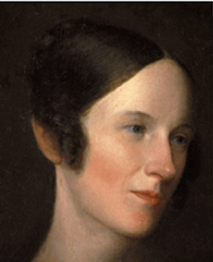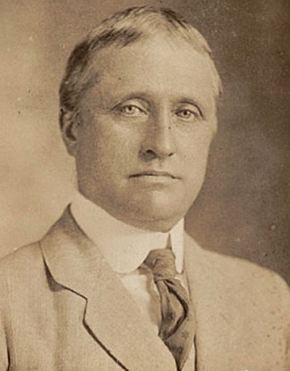Saving Monticello: The Newsletter
The latest about the book, author events, and more
Newsletter Editor - Marc Leepson
Volume XIX, Number 2 February 1,
2022
“The study of the past is a constantly evolving, never-ending journey of discovery.” – Eric Foner
THE COOLIDGES OF BOSTON: About a year before Thomas Jefferson died, on May 27, 1825, the nation’s third president and his daughter Martha Jefferson Randolph hosted the wedding of his favorite granddaughter in the parlor of Monticello. On that day the reserved but adventurous Eleonora Wayles Randolph—known as Ellen—married Joseph Coolidge, Jr., the son of a Boston Brahmin merchant. She was 28 years old.
The couple had met when Joseph Coolidge, who graduated from Harvard in 1817, paid a two-week visit to Monticello in 1824 following his grand tour of Europe.
After a six-week traveling honeymoon, the couple moved to Boston. That state of affairs would become a blessing for Jefferson family and Monticello historians as Ellen (above) and her sisters and mother wrote a steady stream of letters back and forth between Boston and Charlottesville for decades.
Many of those letters are archived at the Alderman Library at the University of Virginia, and they proved to be valuable primary source material that I relied on heavily for putting together the first part of Saving Monticello. In that part of the book I cover Jefferson’s last years, the conditions that left him $107,000 in debt when he died, and the family’s reluctant decision to sell Monticello in 1827.
Ellen and Joseph Coolidge maintained a strong interest in Monticello following her grandfather’s death on July 4, 1826, and the sale of the property by her mother and her brother Thomas Jefferson Randolph to James Turner Barclay in 1831. The Coolidge descendants continued to be associated with Monticello during the years (1834-1921) Uriah Levy and Jefferson Monroe Levey owned the property.As I wrote in the book, Ellen and Joseph’s son, Thomas Jefferson Coolidge (1831-1920), tried to buy Monticello from Uriah Levy’s estate in the late 1860s. T. J. Coolidge (right), who would later become president of the Atchison, Topeka and Santa Fe Railroad and serve briefly as U.S. ambassador to France (as his great-grandfather had) gave up on acquiring Monticello after trying to deal with the two Levy family partition lawsuits that were slowly wending their way through the courts as the family fought over Uriah Levy’s will.
Archibald Cary Coolidge (1866-1928), a grandson of Ellen and Joseph Coolidge, also took a strong interest in Monticello. A Harvard history professor and the first director of the Harvard University Library, Archibald Coolidge was a founding executive officer of the Council on Foreign Relations in 1921.
He spent two years of elementary school, 1875-77, studying at Shadwell just outside Charlottesville, a private school run by his Aunt Charlotte Randolph, where he took first learned about his illustrious his great-great grandfather, Thomas Jefferson.
As I noted in Saving Monticello, in 1889, two years after graduating from Harvard, Archibald Cary Coolidge put up $5,000 of his own money and attempted to borrow $30,000 from his father and other family members to induce Jefferson Levy to sell Monticello. That effort failed, as did another one two years later.
Archibald Cary Coolidge (left) went on to become an active member of the Monticello Association, the Jefferson family organization that formed in 1913 to administer the family graveyard, which did not convey with the sale of the house in 1831, and remained in possession of the Jefferson-Randolph Family. Archibald was the group’s president, from 1919-1925.That’s his father, Joseph Randolph Coolidge and an unidentified family member photo below, which I only recently discovered, at the graveyard on the mountaintop in the late 1880s, about the time Archibald Coolidge was trying to buy Monticello.
After the Coolidge Family purchased Tuckahoe, the old Randolph family estate on the James River in 1898, Archibald Coolidge was a frequent visitor to Virginia, and became active in the Virginia Historical Society. He is buried at Mount Auburn Cemetery in Cambridge, Mass.—not at Monticello—the same place where his mother Ellen, who died in April 1876, six months short of her hundredth birthday, is interred.
OH, ATLANTA:
“The Levys of Monticello,” Steven Pressman’s new documentary based on Saving Monticello, will be premiering this month at the Atlanta Jewish Film Festival, the first of what will be a series of screenings at film festivals around the country. Because of the pandemic, the Atlanta Film Festival is not doing in-theater screenings. Instead, all of the screenings will be held virtually.
That means that “The Levys of Monticello” will be available to viewers during the entire festival, from February 16-27. However, festival’s online films can only be seen by people in Georgia, as well as by members of the AJFF, and festival sponsors. All the details are on the festival’s website, www.ajff.org
The good news is that, as of right now, an in-person screening well be held on Sunday, March 6, at the historic Congregation Mickve Israel, in Savannah during the Savannah Jewish Cultural Arts Festival, formerly the Savannah Jewish Film Festival. Steven Pressman will be on hand for a Q&A after the screening. More info on that, and a link to the trailer, go to https://bit.ly/SavannahDoc
 |
EVENTS: Just two in February. On Thursday, February, 3, I will do a talk on Saving Monticello via Zoom for the Clifton (Va.) Community Woman’s Club.
And on Thursday, February 17, at 4:30 p.m.
Eastern, I will be part of a discussion entitled, “The American Flag as a
Cultural Symbol.” I will be on a panel moderated by Kevin Lindsey, the CEO of
the Minnesota Humanities Center. I’ll be sitting in virtually to give my
perspective based on my book, Flag: An
American Biography. The other panelists will be live at the University of
Minnesota’s Northrop’s Best Buy Theater.
The event is free and open to the public. For more info and to register, go to https://bit.ly/UMinnPanel
If you’d
like to arrange an event for Saving
Monticello—or for any of my other books, please email me at marcleepson@gmail.com
For details
on other upcoming events, check out the Events page on my website: https://bit.ly/NewAppearances
GIFT IDEAS: Want a personally autographed, brand-new paperback copy of Saving Monticello? Please e-mail me at marcleepson@gmail.com I also have a few as-new, unopened hardcover
copies, along with a good selection of brand-new copies of my other books: Flag: An American Biography; Desperate
Engagement; What So Proudly We Hailed; Flag:
An American Biography; and Ballad of
the Green Beret: The Life and Wars of Staff Sgt. Barry Sadler.
The SM
Newsletter on Line: You can read back issues of this
newsletter at http://bit.ly/SMOnline





